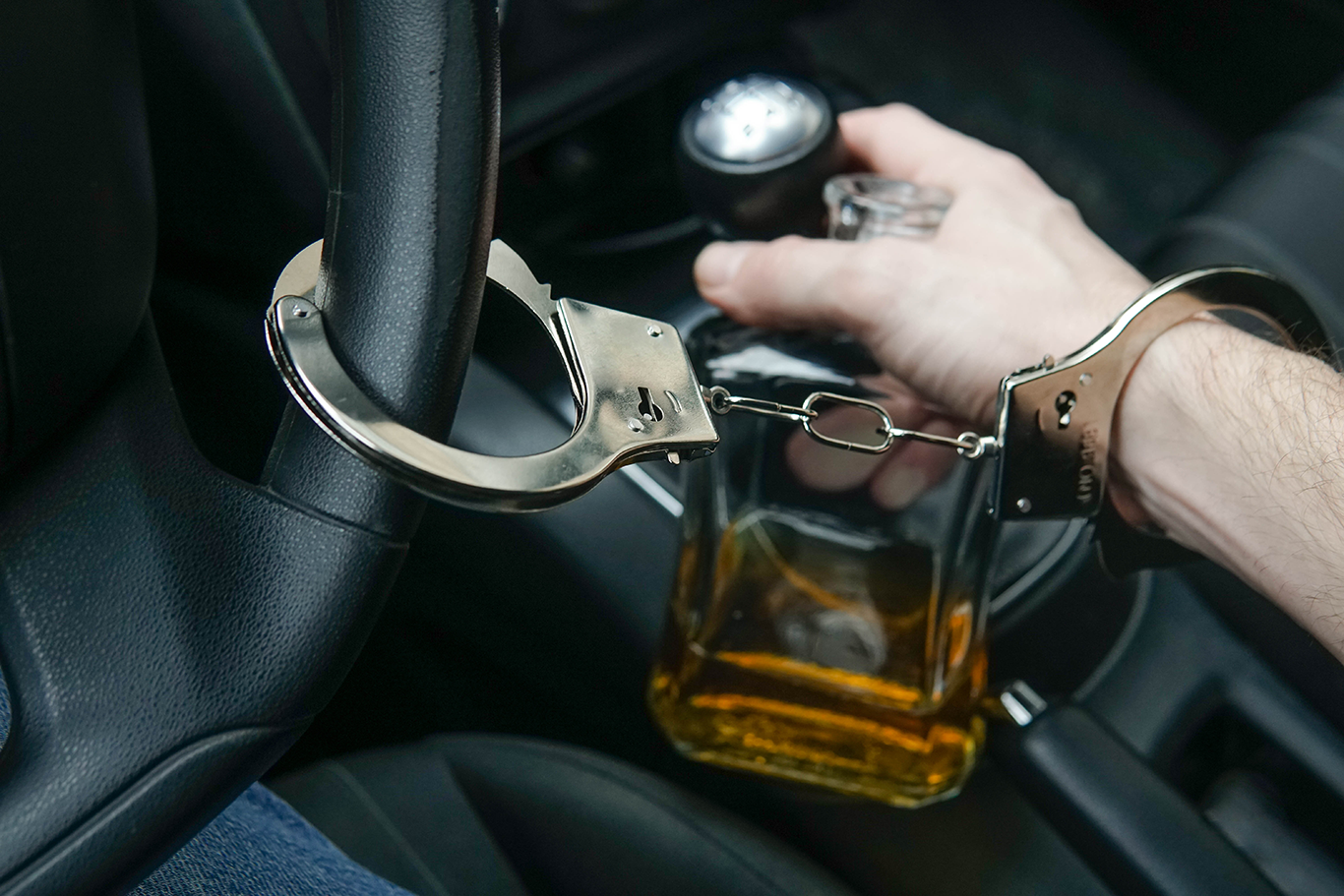How Long Will a DUI Affect Insurance in Florida?
16 April 2025
See How We're Different
or call us: (727) 620-0620

Driving under the influence (DUI) is a serious offense in Florida, and its consequences can extend far beyond legal penalties. One of the most significant repercussions for individuals convicted of a DUI is the impact on their car insurance rates. Understanding how long a DUI will affect insurance in Florida is crucial for anyone facing this situation. This article delves into the intricacies of DUI penalties, insurance implications, and ways to navigate the aftermath.
The Legal Consequences of a DUI in Florida
In Florida, a DUI conviction can lead to severe legal penalties, including fines, license suspension, and even jail time. The severity of these penalties often depends on whether it is a first offense or a repeat offense, as well as other factors such as blood alcohol content (BAC) at the time of arrest.
First Offense Penalties
For a first-time DUI offense, the penalties can include a fine ranging from $500 to $1,000, a possible jail sentence of up to six months, and a license suspension for up to one year. Additionally, offenders may be required to complete a DUI education program and perform community service. These penalties can have a lasting impact on an individual's life, particularly regarding employment opportunities and personal relationships. The stigma associated with a DUI can also affect social interactions, as friends and family may view the conviction with disappointment or concern. Furthermore, many employers conduct background checks, and a DUI on one’s record can hinder job prospects, especially in fields that require driving or operating heavy machinery.
Repeat Offense Penalties
Subsequent DUI offenses carry much harsher penalties. A second DUI can result in fines between $1,000 and $2,000, a jail sentence of up to nine months, and a license suspension for up to five years. For third offenses, the penalties increase significantly, often resulting in felony charges, larger fines, and longer jail sentences. The legal ramifications of multiple DUIs can severely affect an individual’s future. In addition to the immediate legal consequences, repeat offenders may face mandatory installation of an ignition interlock device in their vehicles, which requires them to pass a breathalyzer test before starting the engine. This not only adds financial strain but also serves as a constant reminder of their past mistakes. Moreover, the emotional toll of repeated offenses can lead to feelings of isolation and despair, as individuals grapple with the consequences of their actions and the potential for ongoing legal battles.
Understanding Insurance Implications
Insurance companies view DUI convictions as a significant risk factor. As a result, individuals with a DUI on their record can expect to see a substantial increase in their car insurance premiums. The duration and extent of this increase can vary based on several factors, including the insurance company, the driver’s history, and the specifics of the DUI case. In many instances, drivers may also find themselves facing additional challenges when seeking new insurance coverage, as many companies may be hesitant to underwrite policies for individuals with such convictions.
How Insurance Companies Assess Risk
insurance companies assess risk based on a variety of factors, including driving history, claims history, and any criminal offenses. A DUI conviction indicates a higher likelihood of future claims, prompting insurers to raise premiums or even deny coverage altogether. This assessment can lead to a long-lasting financial burden for those affected. Furthermore, the implications of a DUI extend beyond just insurance rates; they can also affect employment opportunities, especially in industries that require driving as a part of the job. Employers may conduct background checks that reveal a DUI, potentially influencing hiring decisions.
Duration of Increased Premiums
Typically, a DUI conviction can impact insurance rates for three to five years. However, some insurers may consider the DUI for even longer, depending on their policies and the driver's overall risk profile. It’s essential for individuals to understand that while the DUI remains on their record, they may face elevated premiums each time their policy is renewed. Additionally, some states have programs that allow for the expungement of DUI records after a certain period, which can help mitigate the financial impact on insurance rates. However, the process can be complex and may require legal assistance, adding another layer of consideration for those looking to move past their DUI conviction.
State Regulations and Insurance Requirements
Florida law requires all drivers to carry a minimum amount of liability insurance. However, after a DUI conviction, additional coverage may be necessary. Understanding the state's requirements and how they relate to DUI offenses is crucial for maintaining legal driving status. The implications of these regulations extend beyond mere compliance; they can significantly impact a driver's financial responsibilities and insurance premiums.
Minimum Insurance Requirements
In Florida, drivers must carry at least $10,000 in personal injury protection (PIP) and $10,000 in property damage liability (PDL). However, after a DUI conviction, individuals may be required to obtain higher coverage limits or additional types of insurance, such as an SR-22, which is a certificate proving that a driver has the required insurance coverage. It's important to note that while the state mandates these minimums, many drivers opt for higher coverage to protect themselves against potential lawsuits and financial losses resulting from accidents.
SR-22 Insurance Explained
An SR-22 is not an insurance policy itself but rather a form that insurance companies file with the state to prove that a driver has the necessary insurance coverage. This requirement often lasts for three years following a DUI conviction. During this time, drivers must maintain continuous coverage; any lapse can lead to further penalties and complications. Additionally, obtaining an SR-22 can lead to increased insurance premiums, as insurers view drivers with a DUI as higher risk. This can create a financial burden, making it essential for individuals to shop around for the best rates and coverage options that suit their needs.
Moreover, the process of securing an SR-22 can vary depending on the insurance provider. Some companies specialize in high-risk insurance and may offer more competitive rates for those needing an SR-22, while others might refuse coverage altogether. It’s advisable for drivers in this situation to educate themselves about their options and potentially consult with an insurance agent who understands the nuances of DUI-related insurance requirements. Understanding these factors can be pivotal in navigating the often complex landscape of post-DUI insurance obligations, ensuring compliance while also managing costs effectively.
Strategies for Managing Insurance Costs After a DUI
While a DUI conviction can lead to increased insurance premiums, there are strategies that individuals can employ to mitigate these costs. Being proactive can help drivers manage their insurance expenses more effectively.
Shop Around for Insurance
One of the most effective ways to manage insurance costs after a DUI is to shop around for different insurance quotes. Different companies have varying policies regarding how they assess risk and set premiums. By comparing quotes from multiple insurers, individuals may find a more affordable option that meets their coverage needs. Additionally, it’s important to consider not just the premium amounts, but also the coverage limits and deductibles offered by each insurer. Some may provide better benefits or customer service, which can significantly affect overall satisfaction and financial protection in the long run.
Consider Defensive Driving Courses
Enrolling in a defensive driving course can sometimes lead to discounts on insurance premiums. Many insurance companies offer incentives for drivers who complete such courses, recognizing that they are taking steps to improve their driving skills. This can be a beneficial way to reduce costs while also enhancing road safety. Moreover, these courses often cover essential topics such as the dangers of distracted driving, the importance of seat belt use, and strategies for handling adverse weather conditions. Not only does this knowledge contribute to safer driving habits, but it may also help in reducing the likelihood of future incidents that could further impact insurance rates.
Maintain a Clean Driving Record
Another key strategy for managing insurance costs after a DUI is to focus on maintaining a clean driving record moving forward. Insurance companies typically assess risk based on a driver’s history, and a clean record can help in gradually reducing premiums over time. This means avoiding any further violations or accidents, which can be challenging but is crucial for long-term financial health. Additionally, many insurers offer programs that monitor driving behavior, rewarding safe driving habits with discounts. By demonstrating responsible driving, individuals can not only improve their insurance rates but also contribute to a safer driving environment for everyone.
The Long-Term Impact of a DUI on Insurance
While the immediate effects of a DUI on insurance premiums are significant, the long-term implications can also be profound. Understanding these effects is essential for planning for the future.
Record Expungement and Insurance Rates
In some cases, individuals may be eligible to have their DUI conviction expunged from their record after a certain period. However, this process can be complex and often requires legal assistance. If successful, expungement can lead to lower insurance premiums, as insurers will no longer see the DUI on the driver’s record. It's important to note that the eligibility for expungement varies by state and can depend on several factors, including the nature of the offense and whether the individual has completed all sentencing requirements, such as probation or community service. Engaging with a knowledgeable attorney can help navigate these requirements and increase the chances of a successful expungement.
Maintaining a Clean Driving Record
After a DUI, maintaining a clean driving record is crucial. Avoiding further infractions and demonstrating responsible driving behavior can eventually lead to lower premiums. Many insurers offer rewards for safe driving, which can help offset the costs associated with a DUI conviction over time. Additionally, enrolling in defensive driving courses can not only enhance driving skills but may also qualify individuals for discounts on their insurance premiums. These courses often cover the latest traffic laws and safe driving techniques, reinforcing the importance of responsible behavior behind the wheel. Furthermore, some insurance companies provide telematics programs that monitor driving habits, allowing policyholders to demonstrate their commitment to safe driving and potentially earn lower rates as a result.
Conclusion
A DUI conviction in Florida can have far-reaching consequences, particularly regarding car insurance. Understanding how long a DUI will affect insurance rates and the strategies available to mitigate these effects is essential for anyone facing this situation. By being proactive, shopping around for insurance, and maintaining a clean driving record, individuals can navigate the challenges posed by a DUI and work towards restoring their driving privileges and financial stability.




